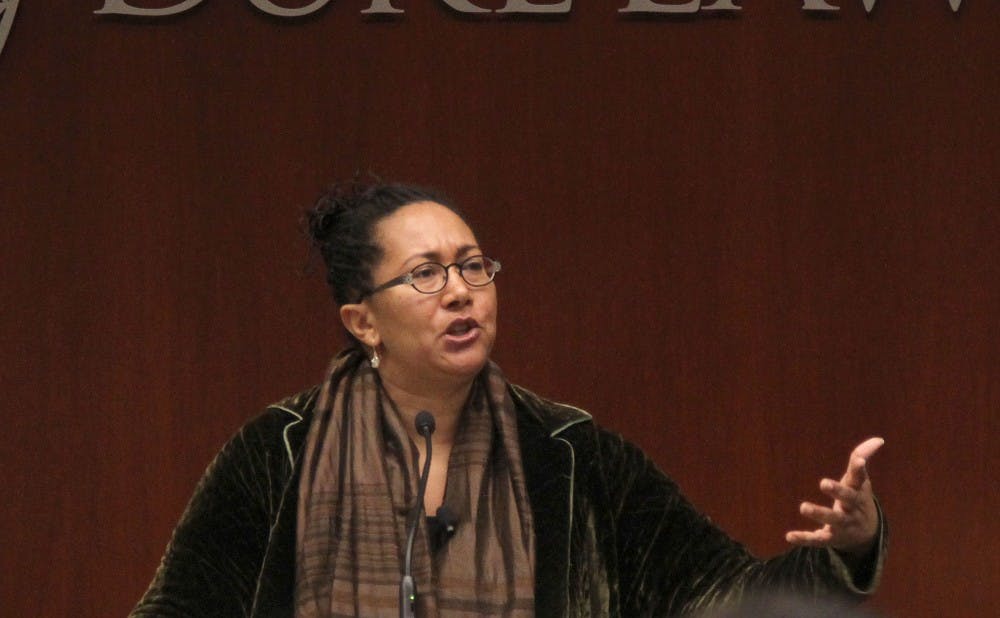The categorization of slaves as property may have been more of a convenience than an accurate reflection of slaves' status.
Adrienne Davis, the John Hope Franklin Visiting Professor of American Legal History, gave a presentation, “Slavery: Beyond the Pure Property Paradigm,” to over 100 students and faculty Thursday in the Law School. She spoke about the intersection of slavery and the law and used common law cases to illustrate problems with the “pure property paradigm," which identifies slaves as property.
“All of these cases—public and private, criminal and civil, inheritance suits, freedom suits—at bottom, they are all about power,” she said. “Property was merely the conceptual bucket, the socially accepted and persuasive way of masking extreme control, subordination and the root-form of power.”
The treatment of slaves as property was simply a convenient way of framing power struggles in court cases, Davis said.
“The legal system understood deeply that this instrument of controlling people was fundamentally different than controlling objects or animals,” she said. “When you find some of the southern judges… saying they were ‘chattel’ or ‘personal property’, everyone understood they were neither chattel nor personal property. Instead they were using property as a way of extorting and controlling an entire group of people.”
Davis also noted that judges struggled with more than just the categorization of slaves as property. Justice in slavery did not always align—slaveholders did not free slaves using the framework of rights, she said.
“Rights recognition, promoting slave welfare through interfering in their subordination and anti-slavery sometimes aligned, but not always,” Davis said.
She cited the case of Talbert v. Jenny, which ultimately ruled in favor of the slave and granted vastly improved welfare for her family, but the case was not won through rights recognition.
"Half the court held her contract to reinforce slavery to be enforceable," Davis said. "I think we would be loathed to call that outcome antislavery.”
Catalina Milos, a master of laws student of Davis' who attended the lecture, noted that the event exposed her to the topic which the seminar class would not normally cover.
“To see the problem with the power over the slaves is very interesting. She says some things in class, but here it was more clear how she got the big idea,” Milos said. “Most of the people addressed the problem [of slavery] before with the lens of property, but in this case, [Davis] is challenging that.”
Roger Boada, a mater of laws student at the event, agreed that Davis brings an interesting but complicated perspective to an oft-discussed topic.
“What she’s saying is not controversial, but it’s more challenging. It’s very easy to see slavery from the lens of absolute property because it creates a comfortable framework of evil slave owners and the poor slaves,” Boada said. “What I like about [this event] is that in the end, you notice that within this system, good people could do evil things.”
Get The Chronicle straight to your inbox
Signup for our weekly newsletter. Cancel at any time.

